Case Study: Conservation Easement for South Kona Coffee Farm
Recently I was fortunate enough to join staff, board, and supporters of the Hawaiian Islands Land Trust (HILT) on a tour of the Honolulu Coffee Companyʻs South Kona coffee farm. This is a perfect example of how conservation easements can keep large parcels in productive agricultural use rather than be carved up into smaller “gentleman farms.”
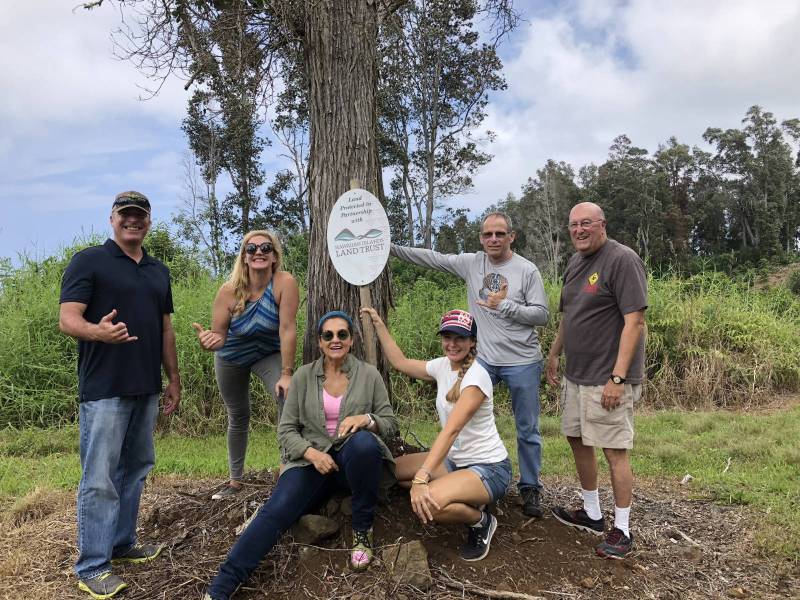
Hawaiian Islands Land Trust staff, board, and advisory council members tour success story property.
Agricultural Use Can Be a “Conservation Value” Protected by Easements
An important use of conservation easements, not only in Hawaiʻi but actually across the United States, is to protect our farmlands. The classic story of a farmer or rancher being so marginally profitable that they sell out to a developer can sometimes be prevented by selling an agricultural conservation easement and keeping the land in use.
In simple terms, a private donor or a government agency pays the landowner for the value they are giving up by extinguishing development rights. The easement is granted to a qualified conservation entity such as HILT to monitor that the terms of the easement restriction are being honored.
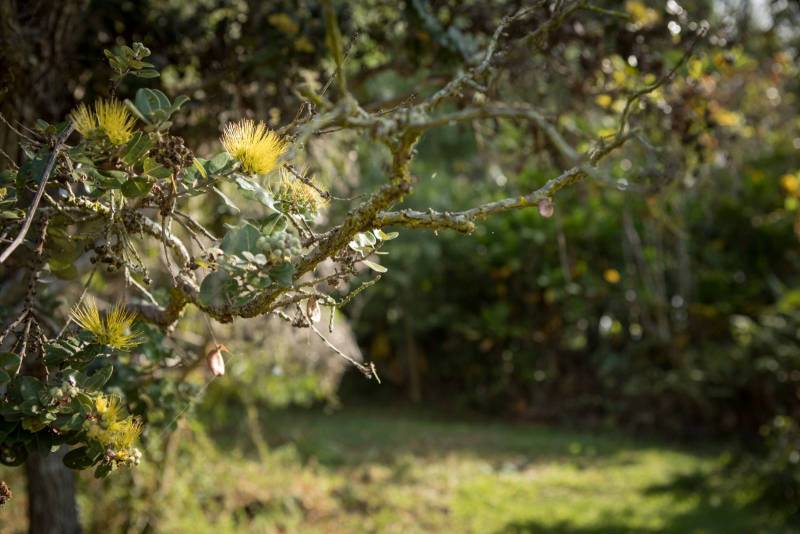
The Honolulu Coffee Company farm protected by easements includes stands of native ʻohiʻa that serve as habitat for endangered bird species.
In the case of the property we toured in South Kona, the owner of the property had a plan approved to subdivide his small coffee farm of 75 acres into fifteen lots. But as a farmer at heart, he felt that the best use of the land was to remain in agricultural use. Meanwhile, Honolulu Coffee Company was searching for a property to grow high-quality specialty Kona coffee for its retail outlets, but with the high cost to acquire land at market value, the numbers did not work.
The transaction came together with the assistance of Hawaiian Islands Land Trust.
- A private donor, the Freedman Foundation, provided the funds for a conservation easement to be donated to HILT.
- Honolulu Coffee Company was able to purchase the land at a lower value that made coffee farming financially viable.
A neighboring property of 150 acres was added in a similar purchase the following year, for a total of 225 acres protected from development.
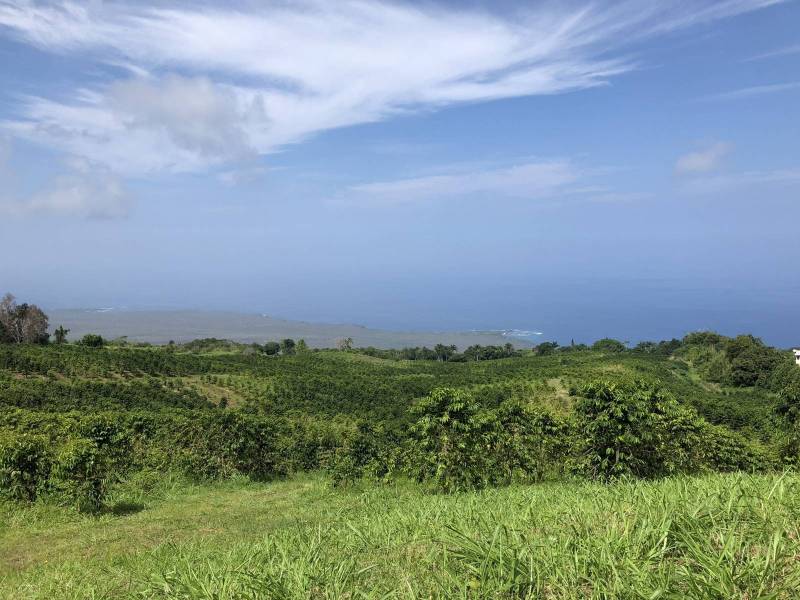
A total of 225 acres in South Kona kept in agriculture thanks to conservation easements. This land is located in Kealakekua. Looking south towards Honaunau from the property.
Protecting the Kona Coastʻs Rich Agricultural Heritage
In 1779, when Captain Cook sailed into Kealakekua Bay directly makai of this farm, these lands were part of the vast Kona field system, a sophisticated native Hawaiian system of dry land agriculture. Remnants of the field system are visible on the property, as they are at nearby Amy B. H. Greenwell Ethnobotanical Garden.
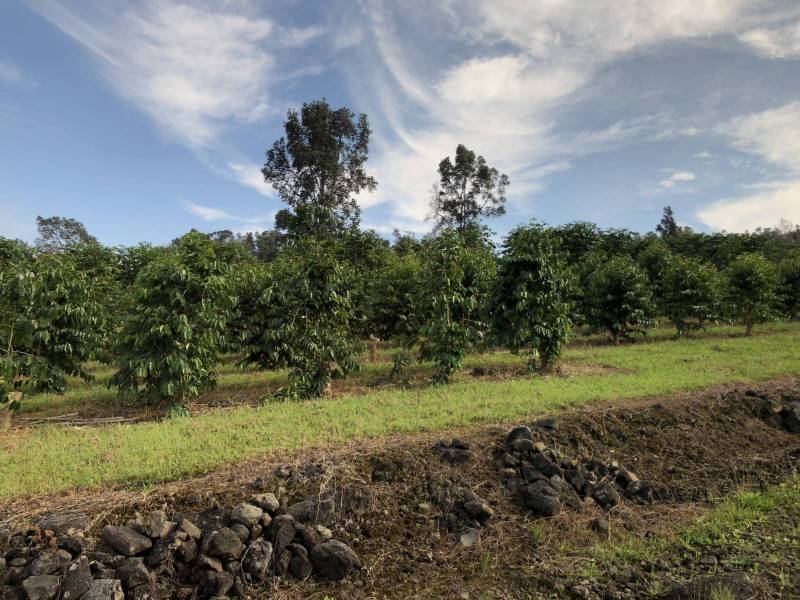
Healthy coffee plants on lands that have been in agricultural production since pre-contact times.
Food self-sufficiency is a major issue for the state of Hawaiʻi with only around 20% of the food consumed in the islands produced here. Whenever I talk to prospective buyers about a large land listing, sustainable agriculture, and agricultural conservation easements are topics I discuss with some urgency.
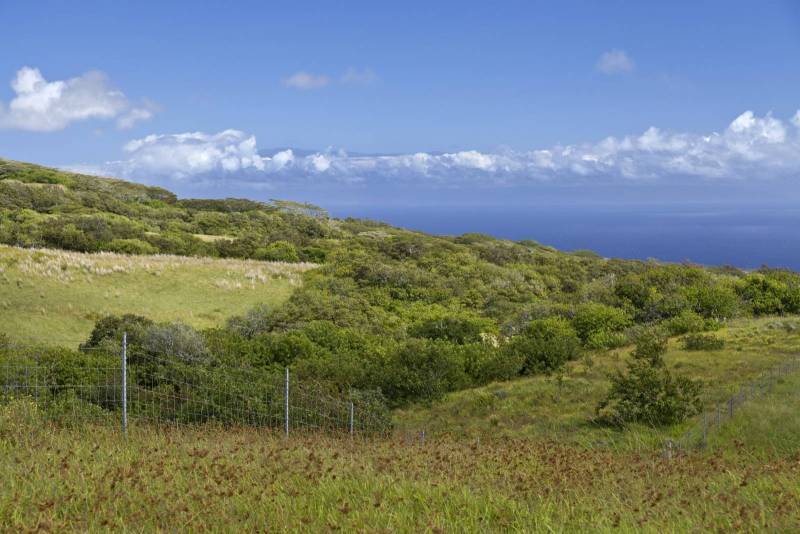
485 acres of legacy ranch or farm in North Kohala..more affordable with easements (MLS 263044).
If keeping Hawaiian lands in agriculture…or restoring land to healthy production…resonates with you, whether as an owner of land or as a potential donor for conservation, feel free to call me to talk story.


Leave your opinion here. Please be nice. Your Email address will be kept private, this form is secure and we never spam you.